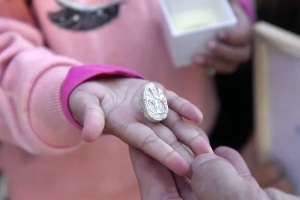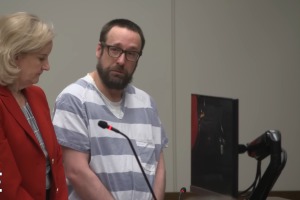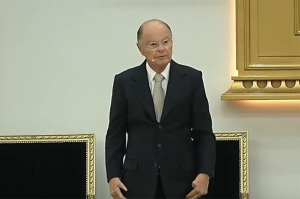Lysa TerKeurst talks unresolved pain, says forgiveness is not an unfair gift
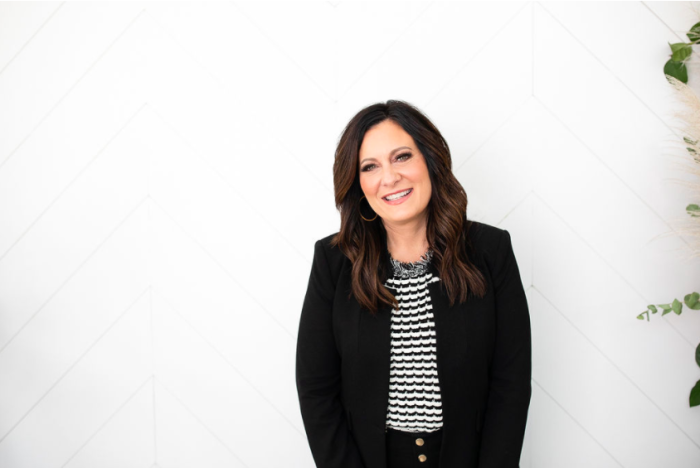
Prominent women's ministry leader Lysa TerKeurst is the first to admit she struggles with forgiveness.
“I'm actually quite resistant to forgiveness,” the popular Bible teacher who leads Proverbs 31 Ministries admitted in an interview with The Christian Post. “I found myself stuck in feeling like some of the unchangeable things in my life were unforgivable. Unchangeable can feel so unforgivable because someone's done something in your life, and they can't fix it, they can't make it go back to the way that it was.
“And that unchangeable nature can feel so unforgivable because even if the person was willing to make it right, they can't make it right. And that hopelessness can really lead you to some deep, dark places.”
It wasn’t until she acknowledged her pain that she was able to begin the journey of forgiveness — a revelation TerKeurst said was both life-changing and empowering. She wrote out her grievances on note cards, fully acknowledged what had happened, and said aloud, “I deserve to stop suffering because of what’s been done to me.”
“Something in me shifted when I started with my pain,” she shared. “I realized, forgiveness is not this unfair gift that I have to give to the person who hurt me. Forgiveness is the decision that I get to make. It’s a step toward my healing. So ultimately, it's God's gift to me so that I can heal.”
The mother-of-five shares her personal journey of acknowledging her pain and walking through biblical forgiveness in her new book,Forgiving What You Can’t Forget. The book is a follow-up to her bestselling 2018 title, It’s Not Supposed to Be This Way.
“This is for those who are struggling with unresolved pain and can’t see a way forward,” she said. “To some extent, we think that resentment or that residual anger in some weird way protects us from getting hurt again.”
“But it's not real protection. It's like fake protection because eventually, it turns us into someone we don't want to be. It brings out the worst of us, an unhealed version of us. When an untended hurt sits in the human heart too long, it has such a tendency to turn into versions of hate. It's so important that we give people this understanding that you don't have to be stuck in your pain.”
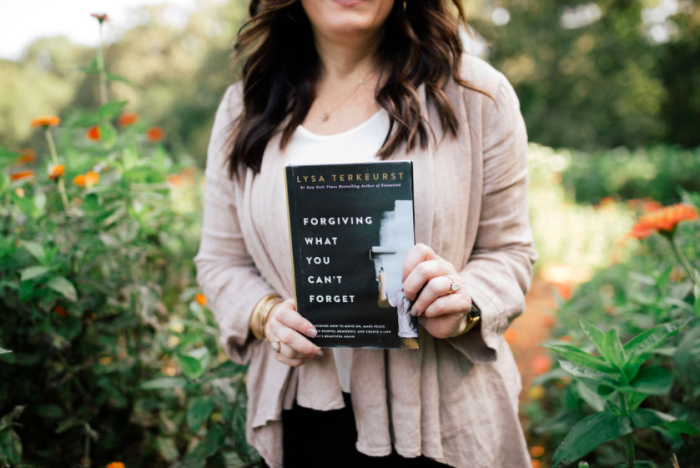
TerKeurst knows firsthand the sting of betrayal, public pain, and heartbreak. In 2016, her world was shattered when her husband of 25 years, Art, had an affair and revealed his struggle with addiction.
Initially, the popular speaker and author announced the couple would be divorcing due to “the worst kind of betrayal.” It was, she previously told CP, an “excruciatingly painful” time in her life. But after working to restore their marriage, the TerKeursts renewed their vows in a ceremony attended by friends and family.
While her story is a testament to God’s grace and mercy, TerKeurst candidly admitted the road to healing has been anything but easy — and is an ongoing process.
“I've made so much progress, I really have,” she said. “But emotional healing is a very fluid process. I’m still learning to heal because there are many layers of things that I needed to heal from. I can't tie it up in a big perfect bow because I'm still in the process.”
“But at least now, I feel like I have the tools necessary to heal. I don't have to feel so stuck in so much pain. I am so much better today than I was four years ago. And I believe four years from now, I'll be even better.”
To those discouraged by “triggering moments” in their forgiveness journeys, TerKeurst offered the encouragement: “You are not a forgiveness failure.”
“Triggers can happen in the midst of everyday life, and they catch us off guard and make us feel like we've been hijacked in our pain all over again,” she said. “When emotional chaos starts to stir up, I need to pause and have another marked moment of forgiveness. Even if I've already forgiven that person for the fact of what happened, I now have to forgive them for the impact that it had on me.”
In Forgiving What You Can’t Forget, TerKeurst highlights the difference between forgiveness and reconciliation. She explained to CP that it’s “important” to know what the Bible actually says about forgiveness — and what it doesn’t say.
While forgiveness is a “command by God with no exceptions,” reconciliation is “dependent on a whole lot of choices,” she said. “Sometimes it's not safe or wise to reconcile. Sometimes the other person has passed away or maybe they’ve moved on and they're not even willing to have that conversation with you.”
“Reconciliation and forgiveness don't hold hands and work together simultaneously,” TerKeurst stressed.
A key part of forgiveness, she emphasized, is vulnerability. True vulnerability includes “making peace with the fact that we're all humans and not one of us is void of dysfunction, hurt, hardship, and chaos.”
“It may play out differently but we're all carrying hurts, sorrows, and questions,” she said. “If my desire is to be vulnerable, it’s not just telling people some of the harder parts of my life, but becoming a safe person for them to bring some of the hurts to their life. It’s giving people permission to be human.”
She pointed out that when Jesus “put the skin of a human on,” He “wept and felt the sting of betrayal.”
“Jesus had moments of hardship despite being perfect and sinless,” she said. “If Jesus wrestled in that way, then it's no surprise that we humans wrestle too. It’s OK to give ourselves permission to wrestle well with God, pressing ever more into God, and not feeling like we have to explain God away. Inviting Him into the hard moments, I think, is a beautiful kind of vulnerability.”
The ability to forgive, she added, “rises and falls on what Jesus has already done.”
“This allows His grace to flow through us,” TerKeurst said. “Forgiveness is God's beautiful gift to us so that our hearts can heal. Forgiveness isn't just for the hard and horrific things that we walk through in life; we're supposed to lean into forgiveness every day and almost pre-forgive the people that could hurt us. Forgiveness allows our hearts to be swept clean."


















